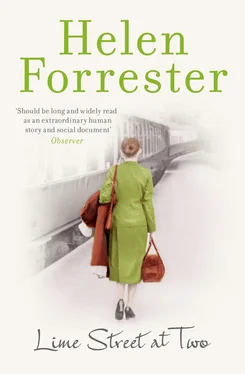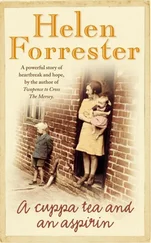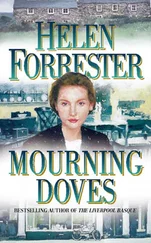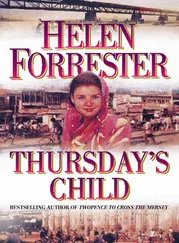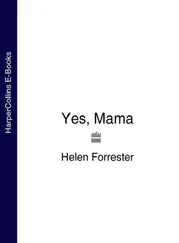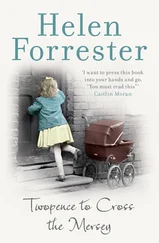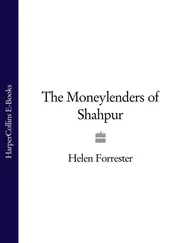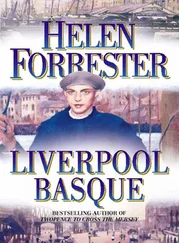Optimistic? Most of Britain was in a state of quiet despair. The British Army had been thrown out of Norway. Our men had been pushed out of France, though, to console us, the saga of the rescue from Dunkirk of the remnants of our army was on everyone’s lips – once or twice, I heard of men who had arrived on their mothers’ doorsteps, filthy, bloody, ragged and exhausted, rifle still in hand, having come straight home after landing; a few of them never went back – protected by their families, they simply deserted.
Now London was being bombed unmercifully, and there was a steady trickle of Londoners fleeing the capital. Some came to Liverpool, only to be caught in the lesser, though still frightening, raids on our city.
Almost everyone suffered nightmares at the thought of a German invasion, and superhuman efforts were made by the Home Guard and civilians to be ready for it. So that the Germans would not be able to find their way, signposts were uprooted and names of railway stations painted over. Nobody seemed to realise that a professional soldier would, in thirty seconds, make any hapless civilian he came upon say exactly where he was. All that happened was that, throughout the war, people got lost like pennies running down a sewer drain. Fortunately the Air Force did not need sign posts to know where it was; otherwise, they might have got lost, too, and the war would have had a different ending. The Army was not so fortunate, and many times, during my long walks in the Wirral, I directed lost, khaki-clad lorry drivers. Once I came upon a stranded tank, its flustered crew kneeling over a map at the roadside. They not only wanted to know where they were but where they could get a cup of tea!
There was a rap on the front door, and Father got up to let in his friend, Tom.
He came into the living-room and stood uneasily fingering his trilby hat, while Father put on his overcoat.
‘Good evening, Helen.’
I smiled up at him rather shyly. I did not like him, because I felt he was responsible for Father’s drinking so much. This was not fair, because Father had always drunk quite heavily, perhaps to soothe his shattered nerves when he returned from the First World War, a shell-shocked neurasthenic.
Tom was a big, heavily built man, a little under thirty years of age, extremely dark, his well-shaven chin still almost black from a threatening fresh growth.
He said to Father, ‘I got my call-up papers this morning.’ He ran the brim of his hat nervously through his fingers.
Father stopped buttoning up his coat. ‘Well, I’m blessed! Army?’
Tom did not look as if he regarded it as a blessing. ‘Yes,’ he replied. ‘Have to report next week.’
‘Ah, well, I suppose it was bound to come. At least you’re single. No family to worry about.’
‘Mother’s very upset.’
‘I’m sure she must be.’ Father sighed, as he picked up his hat. ‘I shall miss you very much.’
Tom half-smiled. ‘Thanks. Are you ready?’
They both said goodbye to me, and left me to my letter. I could hear Avril laughing in the back yard, as she played a game of ball against the house wall, with another little girl. She did not laugh often enough, I thought.
Nickie put his nose on my knee and I patted him absently. Apart from the disintegration of my personal life, the further world around me was changing fast. The war kept nibbling at unexpected aspects of life. Men like Tom were being whisked away, and women like his widowed mother suddenly had to face a society which did not care much what happened to them, a society from which fathers, husbands and sons had given them a good deal of protection.
I tried not to think about my own unhappy situation, but the fact that I did not have the money for a stamp for Alan’s letter reminded me forcibly of my dire financial straits.
What should I do? What could I do when I had so little formal education?
I had recently been for two interviews for secretarial jobs. I was turned down immediately it was obvious that I had hardly been to day school at all. My experience in a charitable organisation did not, I discovered, rank very high. Charities were, in the minds of head clerks interviewing me, run by bumbling amateurs, do-gooders, cranks, a lot of old women. Humbled by the sharp tongues, I had thanked the gentlemen for their time, and had gone home.
On 7th September, 1940, London suffered a dreadful bombing; it went on day and night, until the news was that the city was on fire from end to end. As verbal descriptions of it were passed from mouth to mouth and reached the north, we became more and more apprehensive that our turn would be next.
In a hastily scribbled letter, Alan told me that about five hundred bombers were involved, and that the raiders were very well protected by fighter planes.
Londoners hardly had time to recover before the Germans, on 9th September, mounted another huge operation, in which they stoked up the fires still burning from the earlier raid. On the 11th they hit Buckingham Palace, which seemed incredible to many Liverpudlians. Who would dare to hit the palace of a king? The King seemed almost thankful that he himself had been bombed out; he said that he could now look homeless East Enders in the face!
Liverpool was under nearly continuous nightly attack. Alan said he never went to bed for weeks during that period, but neither did we. We nodded on the basement steps, trying to get what rest we could, while the diving planes screeched overhead and the guns in Princes Park roared unceasingly. I learned a lot of German irregular verbs during those long, sleepless nights, in an effort to continue studies that I had pursued through seven years of evening school attendance. Such schools had been closed at the beginning of the war.
Working in the dock area, I could see that it was daily becoming more difficult to keep the port of Liverpool open, and Bootle, lying immediately to the north, was to have, for its size, the doubtful honour of being the most heavily bombed area in the British Isles. The ingenuity of the population in keeping going amid the ruins was a wonder to behold.
The civilian casualty lists began to lengthen. Amongst other places, the lists were posted outside our main office in the city, and I remember so clearly the tired, anxious faces of the people scanning them. But the faces of a few readers had an expression of morbid fascination, eyes glazed, lips parted, as they read – the same expressions that you can, nowadays, see in the faces of onlookers at an accident or a street murder or rape; they just stare and do nothing about it, getting pleasure out of other people’s agonies.
For many of us, life was solely long days at work, work which in the Bootle area consisted largely of trying to continue normal operations amid the wreckage of a factory or office or warehouse or dock. Then a quick rush for home, into the air-raid shelter – if one was available.
As I write, I can feel the burning tiredness of my eyes at that time, and the acute discomfort of the ridged stone basement steps. I can smell the odour from the cellar of damp coal and of cats. I can see the flaking whitewash on the stairway’s walls and a century of cobwebs hanging from its ceiling. It never seemed to occur to any of us to make some cushions to sit on – we had none in the house – or brush down the dirty walls, perhaps rewhitewash them, to cheer the place up. We were singularly unenterprising and simply endured the long, chilly nights.
If we were lucky, we would get an hour in bed, before we had to get up at six o’clock to go to work. I often felt worse after that hour in bed than if I had stayed up; but it did help to reduce the swelling in one’s feet, which came from never putting them up.
Читать дальше
